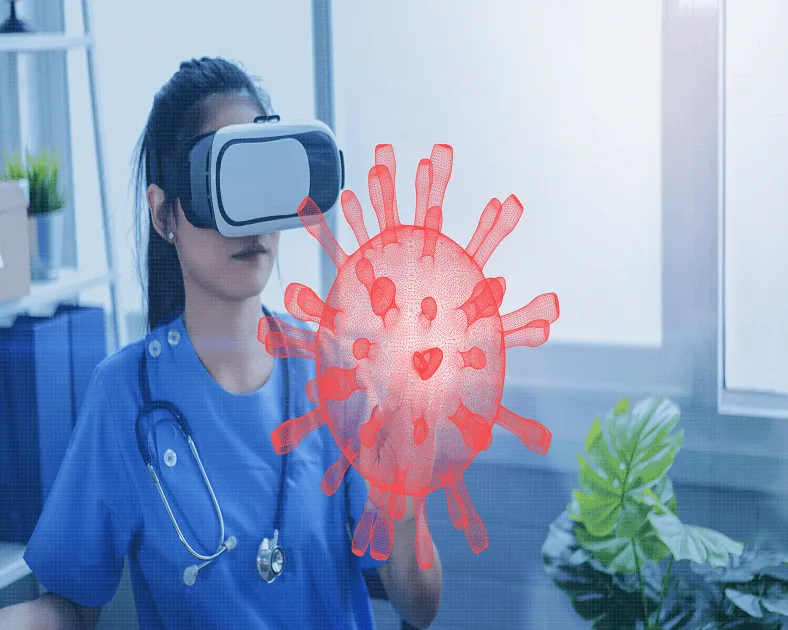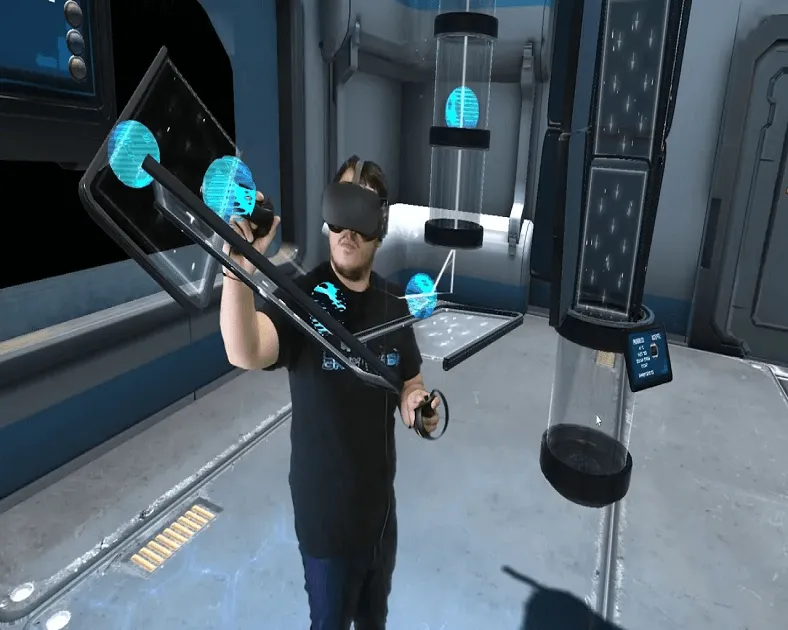Virtual Reality In Math
Virtual Reality / Education
Mathematics often poses challenges for students, as many concepts can feel abstract and difficult to grasp. Traditional teaching methods—such as lectures, textbooks, and worksheets—can sometimes fail to engage students fully. Virtual Reality (VR) is emerging as a revolutionary tool that offers immersive and interactive ways to explore mathematical concepts. This blog explores how VR is transforming math education, making it more engaging, understandable, and enjoyable for learners.
The Benefits of Virtual Reality In Math
- Enhanced Visualization
VR significantly aids in visualizing complex mathematical concepts, such as geometry, calculus, and algebra. Students can see and interact with 3D shapes, offering a clearer understanding of spatial relationships.
- Interactive Learning
VR promotes active learning by allowing students to manipulate mathematical objects and experiment with different scenarios. This hands-on approach encourages exploration and discovery, making learning more dynamic.
- Bridging Abstract Concepts
Many math concepts can feel abstract, but VR brings them to life. For example, students can visualize algebraic equations as physical objects or see the effects of changing variables in real-time.
- Engagement Through Gamification
VR often incorporates gamified elements, transforming lessons into engaging challenges or puzzles. This gamification increases motivation and encourages students to tackle mathematical problems with enthusiasm.
Real-World Applications
As technology continues to advance, the future of VR in math education looks promising. Improvements in VR technology, along with an increase in the development of educational content, will likely make it easier for educators to implement VR into their teaching practices. As VR becomes more accessible, we can anticipate a broader adoption in classrooms around the world.
Conclusion
Virtual Reality is revolutionizing mathematics education by making complex concepts more tangible, engaging, and interactive. By embracing this technology, educators can foster a deeper understanding of mathematics, inspire curiosity, and help students develop a love for the subject. As we continue to explore the potential of VR in education, the possibilities for enriching the learning experience in mathematics are boundless.
Call us
Have you experienced VR in math education or any other subject? We’d love to hear your thoughts and insights! Share your experiences in the comments below, and stay tuned for more discussions on how technology is transforming learning in various fields.
Explore More Projects
We welcome your questions, do not hesitate to contact us
- Create virtual reality and augmented reality experiences at the best prices
- Equipping engineering laboratories with the best equipment
- Virtual tours with 360° technology and also feature that you can see them through just one link
- Create virtual reality and augmented reality experiences at the best prices
- Equipping engineering laboratories with the best equipment
-
Virtual tours with 360° technology and also feature that you can see
them through just one link



